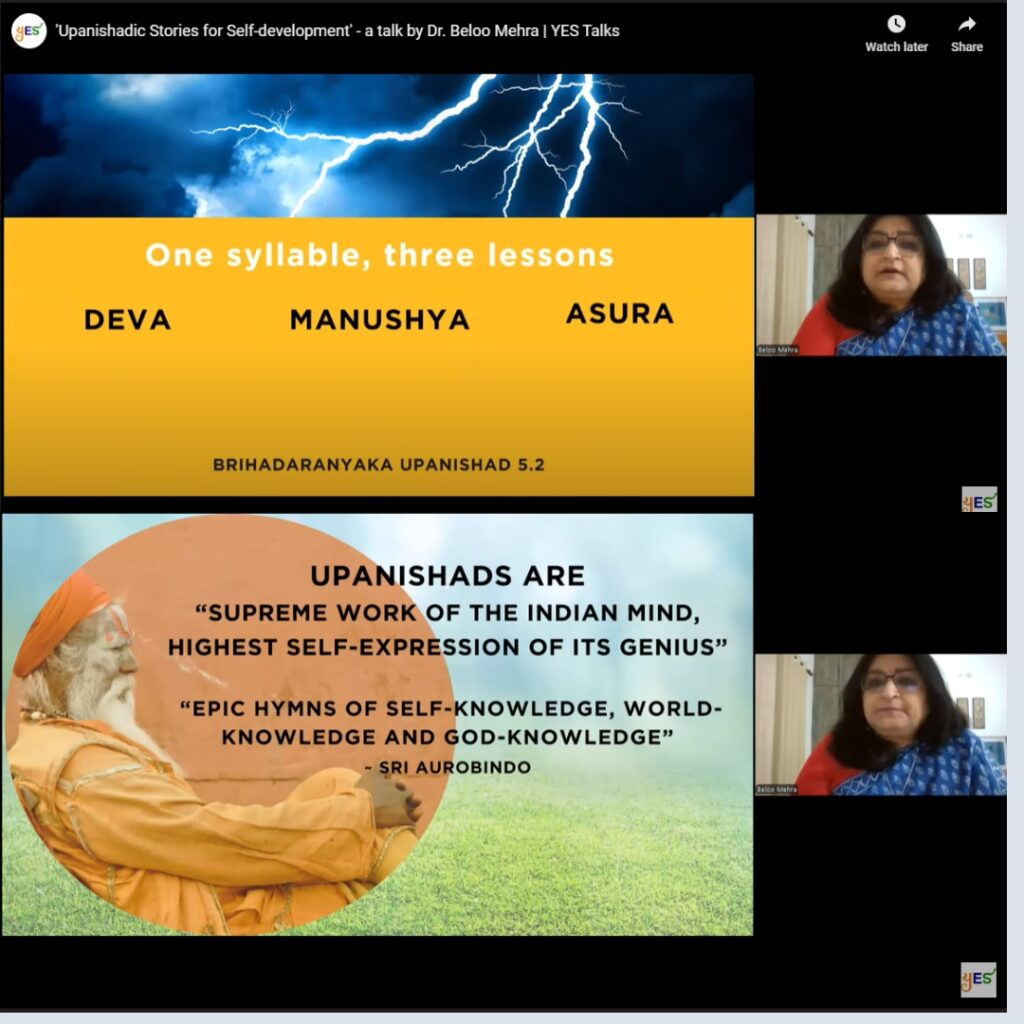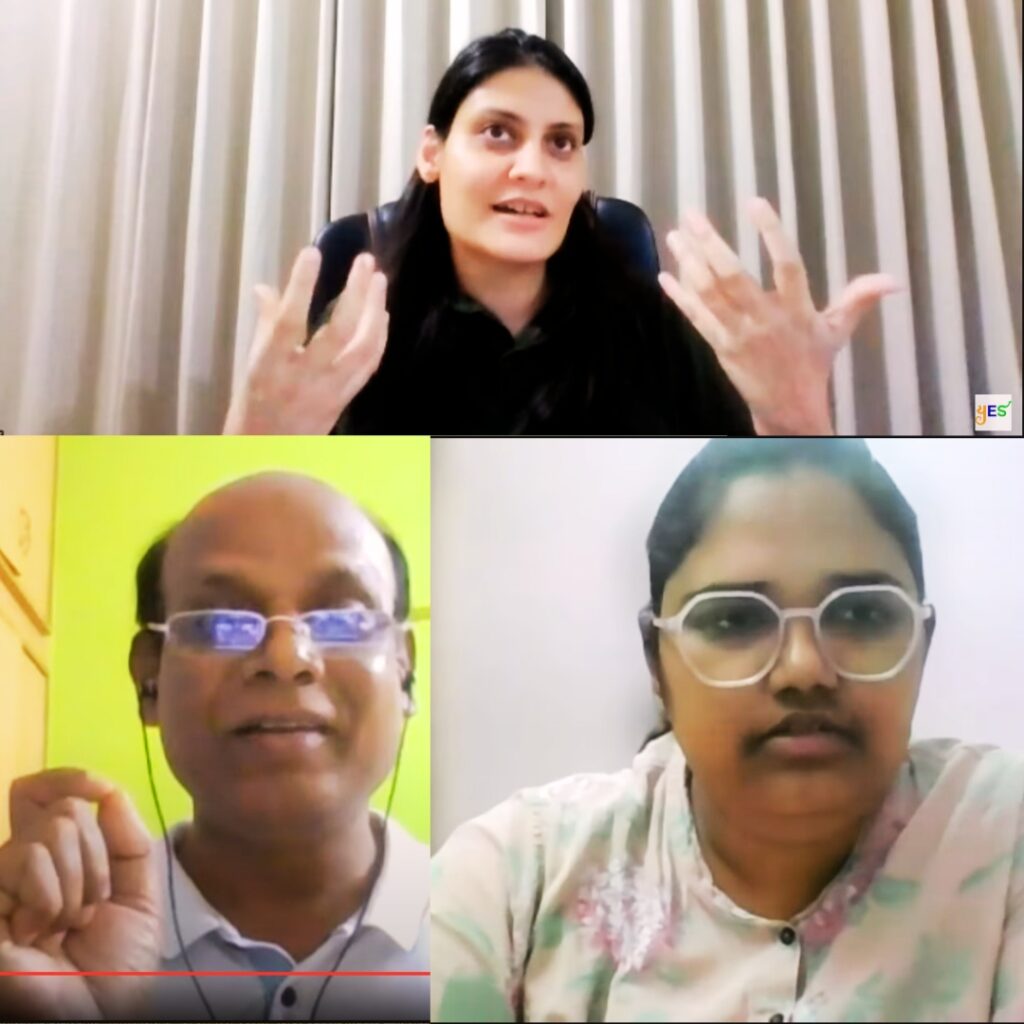Date: July 13, 2024
Venue: Online
WATCH THE RECORDING
On July 13, 2024, Dr. Beloo Mehra was invited to deliver an online talk as part of the weekly YES Talks. YES – Yoga, Education and Spirituality – is an initiative started by Dr. Ramesh Bijlani of Sri Aurobindo Ashram, Delhi Branch, based on the idea – Yoga is education. Education is incomplete without spirituality. Spirituality in practice is yoga.
The session on July 13 was anchored by Ms. Arunima Pathak from Team YES, who also introduced Dr. Mehra at the beginning. Dr. Mehra spoke on the topic – Upanishadic Stories for Self-development. She chose to highlight the power of stories because in the Indian view of cultural studies, the primary emphasis is on the psychological and subjective dimensions of culture, such as its insights, ideals, values, temperament and genius.


In her talk, Dr. Mehra highlighted a few words of the Mother which emphasize that stories can be great vehicles to convey not only these inner dimensions of a culture but also the profound mysteries of existence. From times immemorial, India has been a land of storytellers. Our sages and seers have conveyed the profoundest truths of existence and life through the medium of stories. For the purposes of her talk, Dr. Mehra narrowed down to four specific stories – one from Brihadaranyaka Upanishad, two from Chandogya Upanishad and one from Kena Upanishad.
After a brief introduction to the significance of Upanishadic literature, Dr. Mehra told the stories one by one. She narrated the stories using more contemporary expression so as to make them more living and relevant for present times. After each story, she briefly described the deeper meaning of these stories by highlighting the symbolism of the characters involved in the story, as well as the context, circumstance and event. Emphasis was given on how these stories help us draw meaningful lessons regarding the qualities or values we must cultivate within as aspirants.


The specific values highlighted through these stories were: being steadfast in truth, cultivating samatvam or equanimity, practicing compassion, self-giving, self-control, working with an awareness that it is Divine Force and Energy that is working through us and that nothing is possible without the Divine Shakti, developing our outer instruments as means to help us grow inwardly and progress on the path of psychic discipline.
There was some interesting exchange of thoughts during the interaction time toward the close of the session. A question was asked if there is a difference between practicing compassion toward oneself and toward others. Another participant pointed out the emphasis on conscious parenting that also gets highlighted through some of the stories that were selected for the session. Overall, the session was appreciated by the participants.
